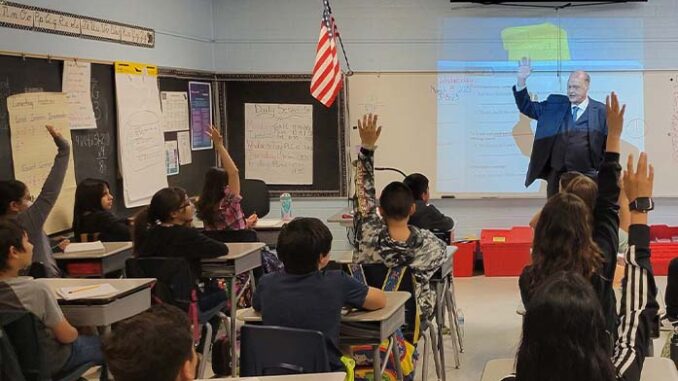
The recent Arizona Republic headline reads, “Gov. Hobbs visits Phoenix dual language programs under attack by School Chief Tom Horne.” Whereas the article by Daniel Gonzalez is mostly fair and factual, that headline is misleading, something Gonzalez had little or nothing to do with. Newspapers employee people to write headlines that consist of eye-catching phrases to draw in the readers. This was no exception but dishonest. It depicts Arizona Superintendent Horne in a negative light that he does not deserve.
Tom Horne has never attacked dual language programs. However, as a linguist himself, he realizes dual language does not offer English learners enough English to become proficient in English as soon as possible. That is the goal. That has to be the goal because, otherwise, English learners have little chance of a successful future in this country. They must learn not just to converse in English but to be able to compute and reason in a language different from what they have grown up speaking in their homes.
I have heard Superintendent Horne carry on intelligent conversations at various times in Polish, Russian, and Spanish. He has studied Latin and French as well. Probably, he is most comfortable with Polish because that language was spoken in his home by his immigrant parents. The other languages he worked very hard to master, but he is probably not “proficient” in any of them. In order to reach that level, one must be immersed in that language for long periods of time, best in the country where that language is spoken everywhere.
We want our English learners to become proficient in English, not just able to order food in a restaurant, talk about the weather, or discuss something related to their jobs.
While a teacher of mostly Spanish-speaking English learners for 19 years, I became aware of the superior intellect of many of my students. They had the ability to enter and contribute to science, engineering, and other fields that require an academic background, such as what Advanced Placement high school courses offer. Without native-like proficiency in English, those students had little chance of qualifying for those classes, admittance to college, and reaching their potential in this country.
As writer Daniel Gonzalez stated, most students in both programs that the governor visited were “fluent English speakers, not English learners.” Their instruction was in either Mandarin Chinese or Spanish for half the day and in English for the other half. They would probably reach a decent level in their second language without losing the benefit of learning core subjects in English. As long as the curricula had been well-planned and students required to keep up or be asked to leave, such a format can work – usually with an extension of the school day.
This plan fails for English learners because they are clustered together with a few English-dominant students for instruction in English that lasts no more than three hours per day. The Spanish instruction has to be basic to accommodate the English-dominant students. Thus, for half the day, the Spanish-speakers end up bored with the lessons in Spanish and then frustrated during the remaining half of the day with instruction in English that is way above their level of understanding!
The data show that it takes years, if ever, for English learners to become English proficient if a large portion of their instruction is in their native language rather than in English. In addition, Arizona law, ARS 15-752, specifies that English learners must be immersed in English, coupled with specific instruction in the beginning, that prepares them for ultimately entering mainstream classes.
Superintendent Horne is absolutely correct to support the English immersion law whereas Governor Hobbs needs to understand the difference between dual language for English-dominant children and dual language for English learners!
Johanna Haver is author of Vindicated: Closing the Hispanic Achievement Gap through English Immersion (Rowman & Littlefield, 2018).
